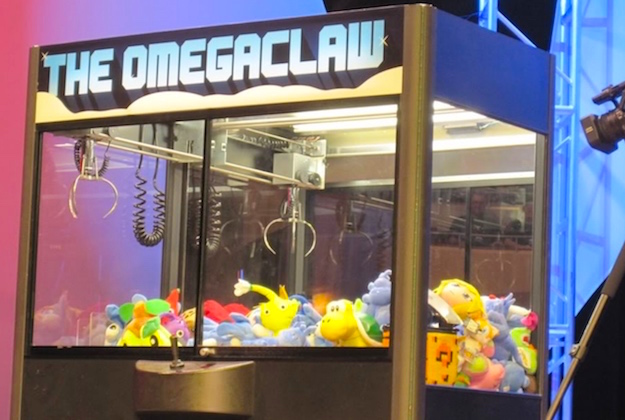
Streaming and the Law of the Claw

My wife was out with friends when talk turned to TV, streaming, and children.
Turns out one friend has raised their very smart and savvy daughter (now 12) on streamed TV — primarily Netflix. Except, every year the child spends a week at her grandparents’ home where she sees traditional cable TV. This friend was horrified to relate that her daughter came home from her most recent visit repeating verbatim the ad content as the gospel truth.
No skepticism. No healthy sense of “being sold to.” Just complete, open minded embrace of what she saw and heard — as if they were 30 second documentaries.
(You ad people need to stop salivating at the idea that people believe every thing you say and read on.)
Then another friend at the table told a similar story
Netflix is, in fact, a tremendous source for kids programming — especially given the tendency of the very young to binge watch.
Some parents add to this goodness by believing Netflix’s freedom from advertising makes it even better because “TV ads manipulate children.” Of course, the studies don’t show that so clearly — especially when at least some viewing is discussed and supervised by engaged parents.
Yet here we are with these kids failing to learn consumer discernment by failing to experience the culture they’ll live within.
This raises a question about streaming I hadn’t expected: Does streaming TV leave our children too vulnerable to advertiser schemes because they lack the cultural encounters needed to know how to listen to advertising?
If the answer is even “maybe”, then there are a bevy of follow on questions we’ll have to begin to consider. Like whether it is possible an entire century of consumer law becomes obsolete because we can no longer assume that consumers accurately detect puffery?
The Soviet Corollary
In an odd coincidence, the only other time I’ve heard this level of advertising naivete was from Soviet raised students in my advertising class.
In one class, I had two sisters who were around 30 and had been born in the 1970s Soviet Union. Within my class, it became clear that, looking through a magazine, they couldn’t separate advertising from editorial content or opinion. They simply were tone deaf to the words and styles of “selling” as opposed to magazine content. Why? They hadn’t been raised with advertising.
I’ve also heard about this from friends who are close to those raised in China.
I do NOT think it’s time to scare parents nor to mount a massive government advertising program on the dangers of…advertising. Nor do we need to worry about a massive meme driven campaign from Russia being used to keep the populace naive. (Ok. Maybe we do.)
But there is real value in keeping kids engaged in the culture.
THE LAW OF THE CLAW
We embraced life within the culture with our boys. We gleefully watched American’s Funniest Videos, Duck Dodgers, and odd Japanese shows. We watched Survivor, Amazing Race, Thirty Rock, Parks and Rec, the Office and NFL Football (primarily the Denver Broncos if you want to know).
We also talked with our boys about being smart consumers and helped them learn about wise choices with money. Within the Garnett family, “The Law of the Claw” became a key mythology.
 Remember claw machines like the one in this photo? They still exist and are filled with shiny baubles that kids want (maybe this is where so many marketers learn to be distracted by shiny baubles).
Remember claw machines like the one in this photo? They still exist and are filled with shiny baubles that kids want (maybe this is where so many marketers learn to be distracted by shiny baubles).
Claw machines also have this apparent simplicity — so kids believe it’ll be easy to win. Except, that’s the exact opposite of the truth. The machine is almost impossible to win — so it’s basically an opportunity for the unwitting child to lose all their money.
While it was extremely painful to let them experience the disappointment of the claw, it resulted in a powerful awareness that SOME companies just want take your money without giving you anything back.
We also discussed TV advertising (including the ads I created) so our kids would gain the street smarts needed to be a good consumer.
I haven’t a clue what we should do about the streaming issue. I do know that marketers NEED good consumers. Smart consumers help the good companies grow and prevent the bad ones from gaining a foothold. But good consumers don’t just “happen”, they develop when they are engaged in the market. And that includes being engaged with advertising.
©2019 Doug Garnett — All Rights Reserved
Through my company Protonik LLC based in Portland Oregon, I advise a select group of clients to drive success with better marketing of new and innovative products. I also work with clients attempting to bring new life to Shelf Potatoes or take their existing products to new markets. You can read more about these services and my unusual background (math, aerospace, supercomputers, consumer goods & national TV ads) at www.Protonik.net.
Categories: Advertising, Business and Strategy, TV & Video
